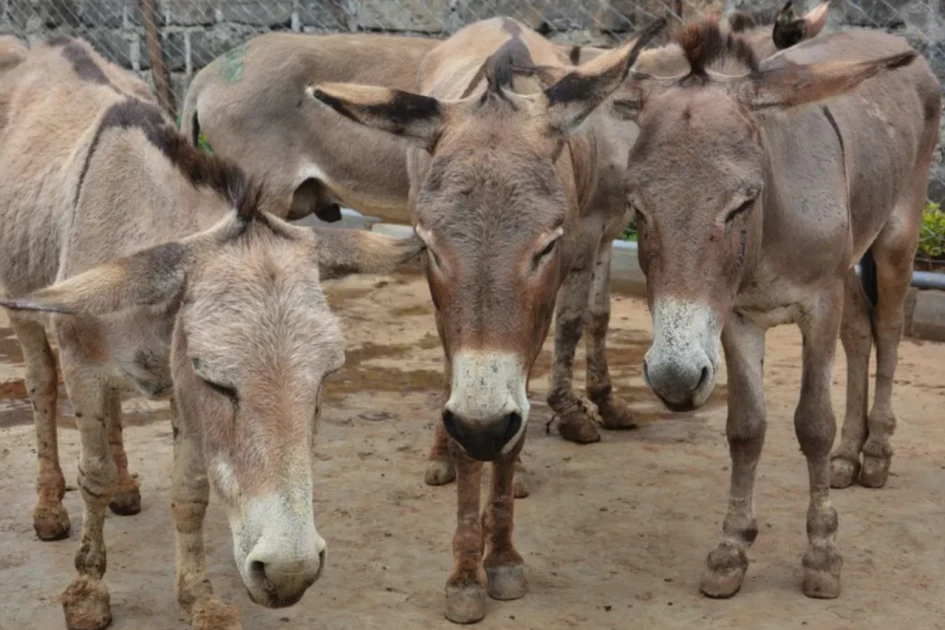Kenya Veterinary Association demands total ban on donkey skin trade

The Kenya Veterinary Association (KVA) has made an urgent appeal to the government to enforce a total ban on the commercial slaughter of donkeys and the export of donkey skins, warning that continued trade poses a grave threat to public health, animal welfare, and the country’s cultural fabric.
The association’s
statement, released on April 4, aligns with the African Union’s 15-year
moratorium on the donkey skin trade issued in 2024 and calls on Kenya to honor
its constitutional duty to protect animals, the environment, and vulnerable
communities.
KVA noted that between
2016 and 2019, Kenya’s donkey population plummeted by over 40%—a decline driven
by China’s demand for ‘ejiao’, a traditional medicine made from donkey hide
gelatin.
“Donkeys are more
than animals in Kenya—they are lifelines for families, especially in ASAL
areas,” said a KVA spokesperson in the statement. “The donkey skin trade
undermines food security, public health, and the cultural identity of entire
communities.”
KVA acknowledged
efforts by the government, including a 100-day Rapid Results Initiative
spearheaded by the Ministry of Interior and National Administration and the
Ministry of Agriculture and Livestock Development in 2024, which intensified
security crackdowns on illegal donkey slaughter and meat trade.
Still, the
association warns that illicit trade persists, often fueled by cross-border
smuggling and organized theft. The consequences, they say, are far-reaching.
In the statement,
KVA highlighted several dangers: “The trade threatens public health through
meat fraud, with uninspected donkey meat sold to consumers as beef, and mental
trauma caused to the donkey-dependent communities by donkey theft.”
Beyond health
concerns, the association pointed to broader constitutional
violations—particularly those relating to property rights, cultural protection,
and the right to a healthy environment.
KVA called on the
government to not only revoke all existing slaughter licenses but to
criminalize illegal smuggling and develop a national donkey identification and
tracking system.
They also urged
investment in alternative livelihoods for communities previously reliant on the
trade.
“Kenya must lead
Africa by example—by turning policy into action and protecting its people,
animals, and constitutional values,” the statement read.
In a related
appeal, KVA also called for urgent reforms in food safety governance,
particularly around animal source foods (ASFs) such as meat, milk, fish, and
honey. The association emphasized that food safety is not a luxury but a
necessity for national development.
“Unsafe ASFs
contribute to a high burden of foodborne diseases… An estimated 70% of
households in Kenya experience foodborne illnesses annually,” KVA stated.
The organization
wants county and national governments to fast-track food safety legislation,
strengthen compliance enforcement, and invest in inspection capacity across the
food value chain.
“This is
everybody’s responsibility,” the press brief concluded.
Want to send us a story? SMS to 25170 or WhatsApp 0743570000 or Submit on Citizen Digital or email wananchi@royalmedia.co.ke
Comments
No comments yet.



Leave a Comment